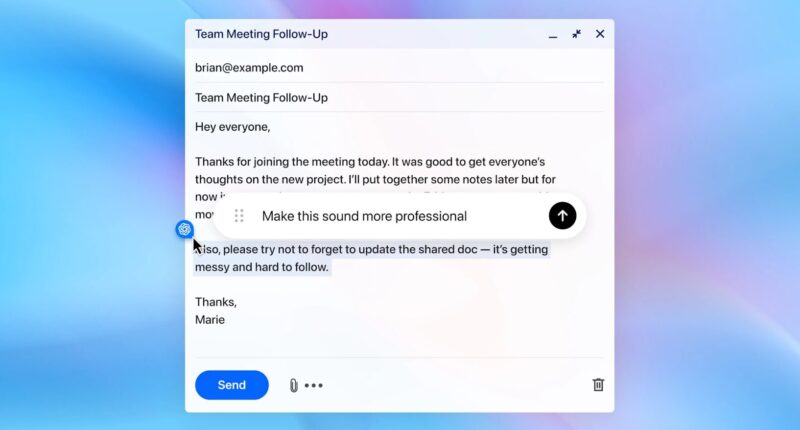OpenAI has launched ChatGPT Atlas, a web browser with ChatGPT built into its core, enabling the AI assistant to understand browsing context, complete tasks and remember details from visited sites.
The browser allows ChatGPT to work within any webpage without users needing to copy and paste or leave the page. ChatGPT memory is integrated, enabling conversations to draw on past chats and details. Browser memories let ChatGPT remember context from visited sites and retrieve that context when needed. This feature is entirely optional, and users can view or archive memories at any time.
“During lectures, I like using practice questions and real-world examples to really understand the material. I used to switch between my slides and ChatGPT, taking screenshots just to ask a question. Now ChatGPT instantly understands what I’m looking at, helping me improve my knowledge checks as I go,” said Yogya Kalra, a college student and early tester of ChatGPT Atlas.
The browser includes agent mode, available in preview for Plus, Pro and Business users, which enables ChatGPT to research and analyse, automate tasks, and plan events or book appointments while users browse. Users can ask ChatGPT to take actions such as finding a grocery store, adding ingredients to a cart and ordering them, or opening past team documents, performing competitive research and compiling insights into a brief.
Safety guardrails for agents
OpenAI has implemented safety guardrails for agent capabilities, including preventing the agent from running code in the browser, downloading files or installing extensions. The agent cannot access other apps on the computer or file system, and will pause to ensure users are watching when taking actions on sensitive sites such as financial institutions.
However, OpenAI acknowledges that ChatGPT’s agent capabilities carry risk. Besides making mistakes when acting on behalf of users, agents are susceptible to hidden malicious instructions in webpages or emails that could override intended behaviour, potentially leading to stealing data from logged-in sites or taking unintended actions.
This launch marks a step toward a future where most web use happens through agentic systems — where you can delegate the routine and stay focused on what matters most, OpenAI said.
By default, OpenAI does not use browsed content to train its models. Users can opt in by enabling “include web browsing” in data controls settings. If users have enabled training for chats in their ChatGPT account, training will also be enabled for chats in Atlas, including website content attached when using the Ask ChatGPT sidebar and browser memories that inform chats.
ChatGPT Atlas launched worldwide on macOS to Free, Plus, Pro and Go users. The browser is available in beta for Business users, and if enabled by plan administrators, for Enterprise and Edu users. Versions for Windows, iOS and Android are coming soon.











